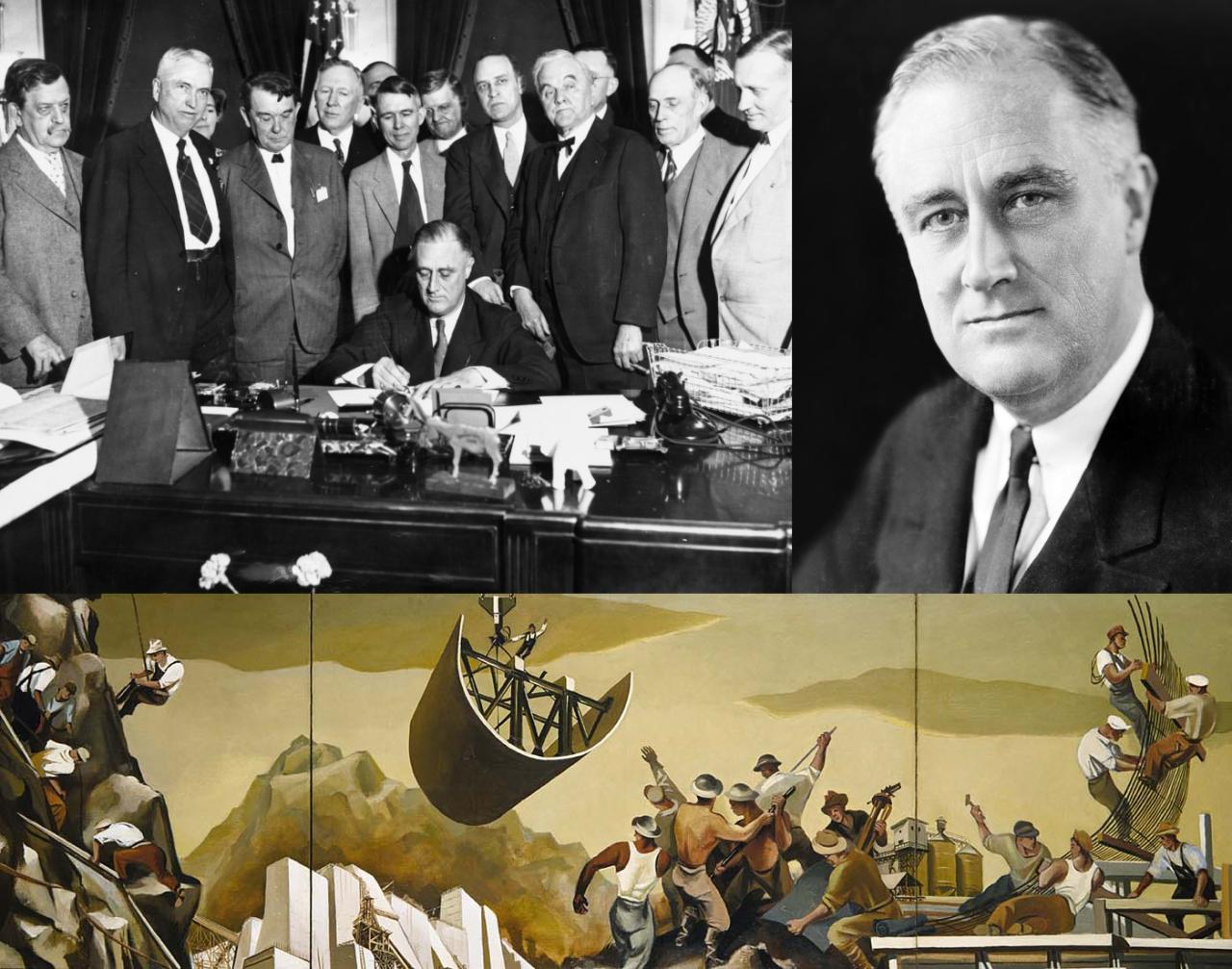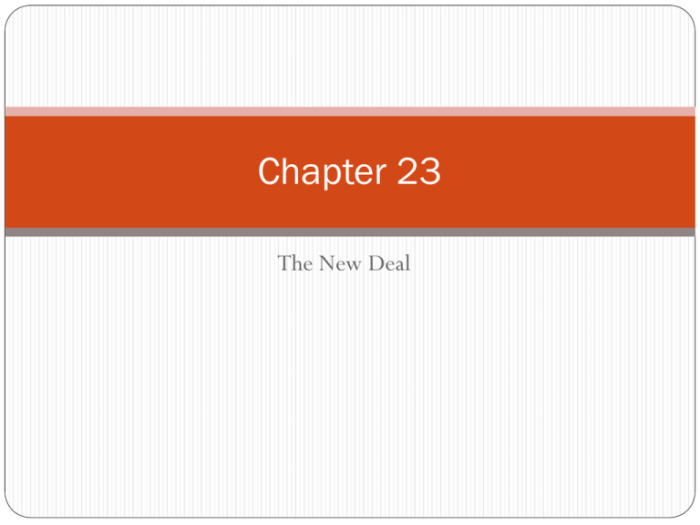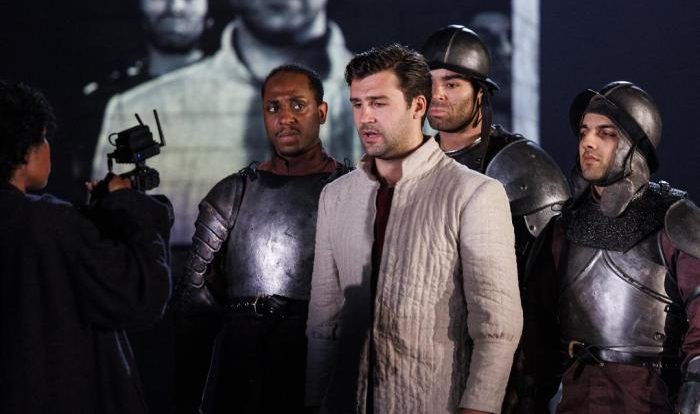The new deal overhaul or overthrow answers – With the “New Deal: Overhaul or Overthrow?” debate at the forefront, we embark on an enlightening journey that delves into the complexities of this pivotal era in American history. This multifaceted topic invites us to explore the economic and political landscape of the Great Depression, dissect the New Deal’s key provisions and objectives, and uncover the compelling arguments for both overhauling and overthrowing it.
As we navigate through these perspectives, we will uncover the impact of the New Deal on American society, drawing parallels and contrasts between the two approaches, and ultimately assessing their historical and contemporary relevance.
The New Deal, a comprehensive set of economic and social reforms implemented by President Franklin D. Roosevelt, aimed to combat the devastating effects of the Great Depression. Its ambitious programs sought to provide relief to the unemployed, stimulate economic recovery, and reform the financial system.
However, the New Deal faced significant opposition from those who believed it was an overreach of government authority and a departure from American principles of individualism and limited government.
1. Historical Context

The Great Depression was a devastating economic crisis that gripped the United States from 1929 to 1939. It led to widespread unemployment, poverty, and social unrest.
Key Provisions of the New Deal
- Relief measures: Provided immediate assistance to the unemployed and needy.
- Recovery measures: Stimulated economic growth through public works projects and financial reforms.
- Reform measures: Introduced long-term changes to the economy and social welfare system.
Goals and Objectives of the New Deal
The New Deal aimed to alleviate the suffering caused by the Depression, restore economic stability, and prevent future crises.
2. Arguments for Overhauling the New Deal

Criticisms of the New Deal’s Effectiveness
- Did not end the Depression quickly enough.
- Led to increased government spending and debt.
- Empowered the federal government at the expense of states.
Perceived Shortcomings and Limitations
- Too focused on short-term relief rather than long-term recovery.
- Failed to address structural problems in the economy.
- Created dependency on government assistance.
Proposed Reforms or Changes
- Reduce government spending and regulations.
- Promote free market principles.
- Balance the federal budget.
3. Arguments for Overthrowing the New Deal

Reasons for Opposition
- Belief that the New Deal violated constitutional principles.
- Concerns about the growth of federal power.
- Opposition to government intervention in the economy.
Ideological and Political Motivations
- Conservatives: Favored limited government and free markets.
- Libertarians: Opposed government coercion and infringement on individual rights.
- Isolationists: Resented the New Deal’s expansion of federal power and involvement in international affairs.
Advocates for Overthrowing the New Deal
- Herbert Hoover (former president)
- Alfred Landon (Republican presidential candidate in 1936)
- American Liberty League (conservative organization)
4. Impact of the New Deal on American Society: The New Deal Overhaul Or Overthrow Answers
Positive Consequences
- Provided relief to millions of Americans.
- Stimulated economic growth and created jobs.
- Expanded the role of government in social welfare.
Negative Consequences
- Increased government spending and debt.
- Empowered the federal government at the expense of states.
- Created dependency on government assistance.
Long-Term Effects, The new deal overhaul or overthrow answers
- Reshaped the American economy and social structure.
- Established a precedent for government intervention in times of crisis.
- Influenced American politics and government for decades to come.
5. Comparison of Overhaul and Overthrow Perspectives
Similarities
- Both recognized the need for changes to the New Deal.
- Both aimed to improve the economy and society.
Differences
- Overhaul: Sought to modify the New Deal while maintaining its core principles.
- Overthrow: Advocated for the complete dismantling of the New Deal and a return to pre-Depression policies.
Implications
- Overhaul: Could have preserved the benefits of the New Deal while addressing its shortcomings.
- Overthrow: Would have reversed the expansion of government power and social welfare programs.
Expert Answers
What were the key provisions of the New Deal?
The New Deal encompassed a wide range of programs, including the Social Security Act, the National Labor Relations Act, the Securities and Exchange Commission, and the Federal Deposit Insurance Corporation.
What were the arguments for overhauling the New Deal?
Critics of the New Deal argued that it was too expensive, too intrusive in the private sector, and that it did not adequately address the root causes of the Great Depression.
What were the arguments for overthrowing the New Deal?
Opponents of the New Deal believed that it was a fundamental departure from American principles of limited government and individual liberty, and that it would lead to a socialist or totalitarian state.
